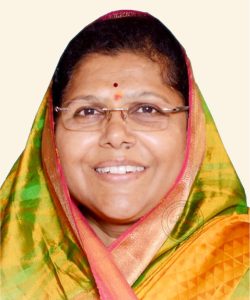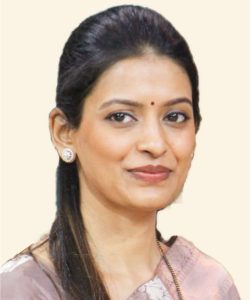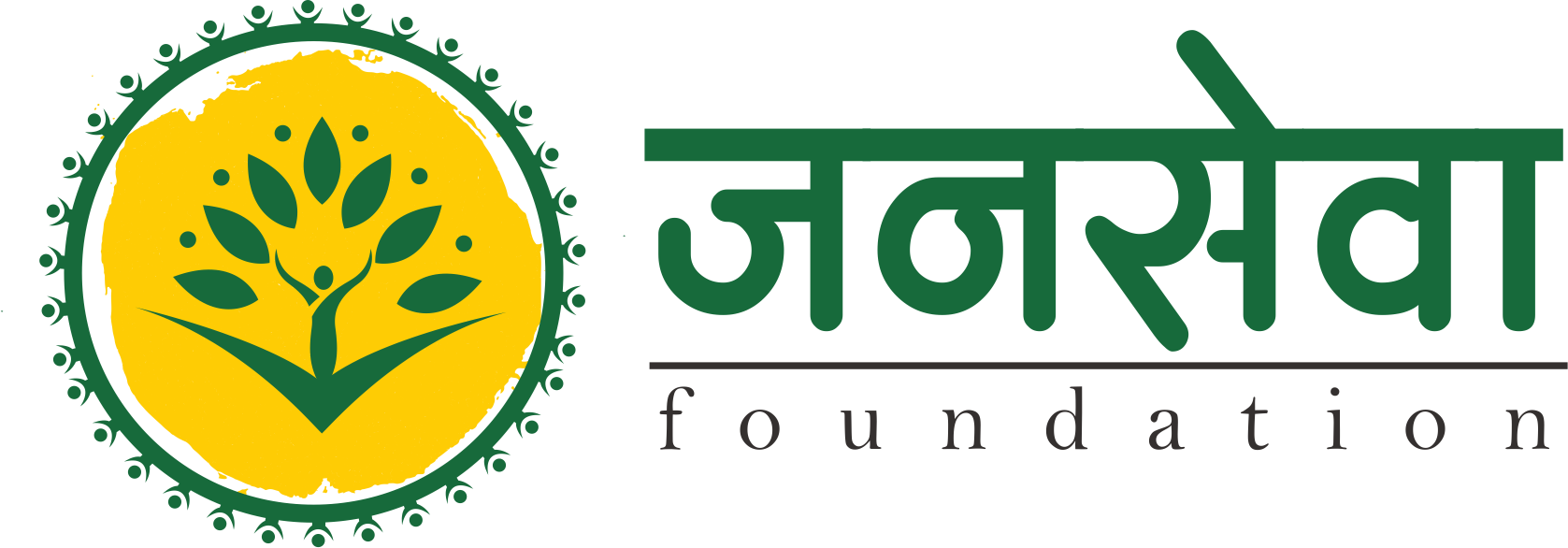About Us
Pillars of Janseva Foundation

Hon. Shri. Radhakrishna Vikhe Patil
Minister Revenue , Animal Husbandry, Dairy Development Government of Maharashtra

Shalinitai Vikhe Patil
Director - Janseva Foundation
President - Sai Dwarkamai

Sujay Vikhe Patil
Member of Parliament
(Ahmednagar South)

Dhanashri Tai Sujay Vikhe patil
Vice President - Sai Dwarkamai

1. Janseva foundation was established in the year 1996 to provide a helping hand to the rural women. Janseva has worked tirelessly for the past 27 years towards womanempowerment by providing education, skill development, means of finance, promotion of Self-Help Groups and arranging market for their products, creating awareness against dowry
practices and promotion of ‘Save the Girl Child Movement’.
2. Janseva has brought 1470 women’s Self-Help Groups (SHGs) involving over 15,000 members from 105 villages under one umbrella. Janseva provides training and financial support for the member women. Janseva regularly conducts ‘Swayamsiddha Yatra’ for
marketing of these SHG products.
3. Janseva has adopted 211 families of the farmers who ended their lives due to financial distress. These families are provided with flour mills, sewing machines and
educational support to their children.
4. Janseva provides free accident insurance policies to the marginalized families of the Rahata Tehsil.
5. Janseva organized and distributed free fodder to the animals in the drought prone areas in the year 2012.
6. Janseva organizes mass wedding ceremonies for the benefit of poor families thereby minimizing the incidences of dowry and unnecessary expenses.
7. Janseva actively promotes and celebrates the birth of girl child under the ‘Beti Bachao – Beti Padhao Abhiyaan’.
8. Janseva has contributed to the Watershed Development Program by constructing check dams and tree plantation in Ahmednagar District.
9. Janseva runs a college for tribal youth in Akole Tehsil of Ahmednagar District, which has made it an easy way for tribal boys and girls to pursue higher education without leaving their villages.
10. Janseva regularly conducts free health camps in the rural areas.
11. Janseva has provided solution to the monumental ‘temple-waste’ problem at Shirdi Saibaba temple. The sacred flowers are handcrafted into charcoal-free incense sticks,
dhoop, organic and bio-degradable flowerpots by rural women. Thus, saving the environment by contributing to a circular economy philosophy.
12. Janseva manufactures eco-friendly sanitary pads for the women thereby contributing to a sustainable and environment friendly lifestyle.
1. Janseva foundation was established in the year 1996 to provide a helping hand to the rural women. Janseva has worked tirelessly for the past 27 years towards womanempowerment by providing education, skill development, means of finance, promotion of Self-Help Groups and arranging market for their products, creating awareness against dowry
practices and promotion of ‘Save the Girl Child Movement’.
2. Janseva has brought 1470 women’s Self-Help Groups (SHGs) involving over 15,000 members from 105 villages under one umbrella. Janseva provides training and financial support for the member women. Janseva regularly conducts ‘Swayamsiddha Yatra’ for
marketing of these SHG products.
3. Janseva has adopted 211 families of the farmers who ended their lives due to financial distress. These families are provided with flour mills, sewing machines and
educational support to their children.
4. Janseva provides free accident insurance policies to the marginalized families of the Rahata Tehsil.
5. Janseva organized and distributed free fodder to the animals in the drought prone areas in the year 2012.
6. Janseva organizes mass wedding ceremonies for the benefit of poor families thereby minimizing the incidences of dowry and unnecessary expenses.
7. Janseva actively promotes and celebrates the birth of girl child under the ‘Beti Bachao – Beti Padhao Abhiyaan’.
8. Janseva has contributed to the Watershed Development Program by constructing check dams and tree plantation in Ahmednagar District.
9. Janseva runs a college for tribal youth in Akole Tehsil of Ahmednagar District, which has made it an easy way for tribal boys and girls to pursue higher education without leaving their villages.
10. Janseva regularly conducts free health camps in the rural areas.
11. Janseva has provided solution to the monumental ‘temple-waste’ problem at Shirdi Saibaba temple. The sacred flowers are handcrafted into charcoal-free incense sticks,
dhoop, organic and bio-degradable flowerpots by rural women. Thus, saving the environment by contributing to a circular economy philosophy.
12. Janseva manufactures eco-friendly sanitary pads for the women thereby contributing to a sustainable and environment friendly lifestyle.

This is how it is made....
Dhanashree Vikhe Patil, Vice President – Sai Dwarkamai told that Vehicles of Janseva Foundation transport the flowers and garlands collected from Sai Mandir to Loni where the project is initiated in the village. Here different colored roses, marigold flowers are separated from the garlanding ropes. It is then dried in the solar drier and after three days it is processed down in the powdered form. Then to keep it intact a special sticky substance is mixed in the process with sticks being dipped in the container where the coating is done. It is then coated in the machine & then re-spread and then the incense sticks (agarbatti) are dried, then again the stack is dried by dipping it in the natural scent of roses. After this these stacks are packed in attractive packets of 30 grams and sold in hand in the market just within the temple premises.

About Janseva Foundation
Hon. Shri. Radhakrishna Vikhe Patil MLA and former Cabinet Minister Government of Maharashtra, a renowned name in Maharashtra, has continued the legacy and vision of Padmashri. Dr. Vitthalrao Vikhe Patil and Hon. Padma Bhushan Shri. Balasaheb Vikhe Patil by pioneering the “Janseva Foundation” for the social, educational and economic upliftment of rural masses.
It was under their guidance that the unique initiative of converting flowers offered to Shri Sai Baba Temple at Shirdi to useful Agarbattis started. This not only eliminated the wastage of flowers but also became a source of employment for women. This initiative was backed by the introduction of new technology that helps homemakers and unemployed women to make incense sticks from flowers thereby helping in socio-economic development. We are so grateful to them for the vision and direction they have shared with us. This initiative has lived up to the expectations of Hon. Prime Minister Narendra Modi’s vision of converting waste into wealth.
Inception Story
Hon. Shalinitai Vikhe Patil, former President Zilla Parishad Ahmednagar, and promoter – Janseva Foundation was inspired on her visit to Israel, where she saw a variety of products being made from flowers. In India, we have a serious problem with the disposal of flowers, so the idea of making incense sticks (agarbatti) from flowers dawned on her mind. Flowers offered to the deities were not put to any use earlier, hence were disposed of as wastage. However, the process of converting them to agarbattis not only acted as a big step towards women empowerment but also carried the blessings of Shirdi Sai Baba further in the form of incense sticks. This has generated employment for self-help group (SHG) women. Also this has solved the problem of flower disposal and provided market value for the vendors and farmers. Shalinitai further added that the dignity of our tradition is that nothing is a waste on this earth and this is a testimony of this fact.